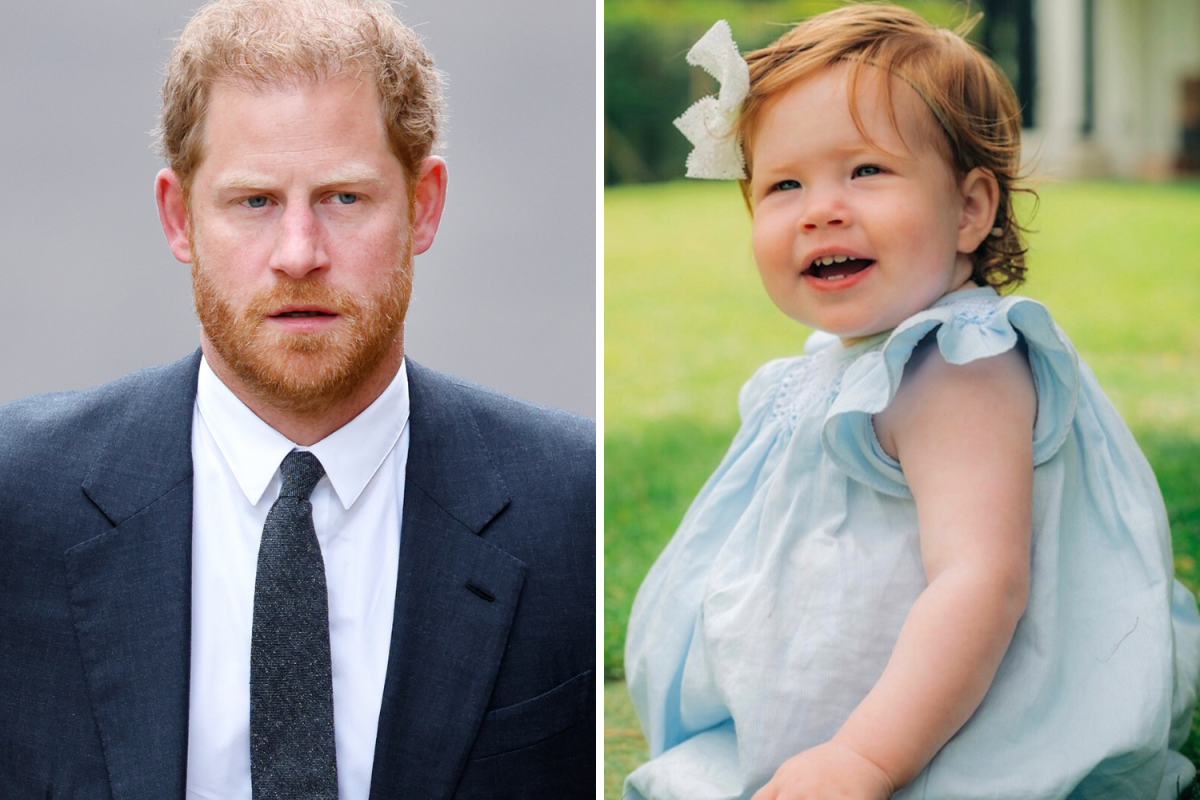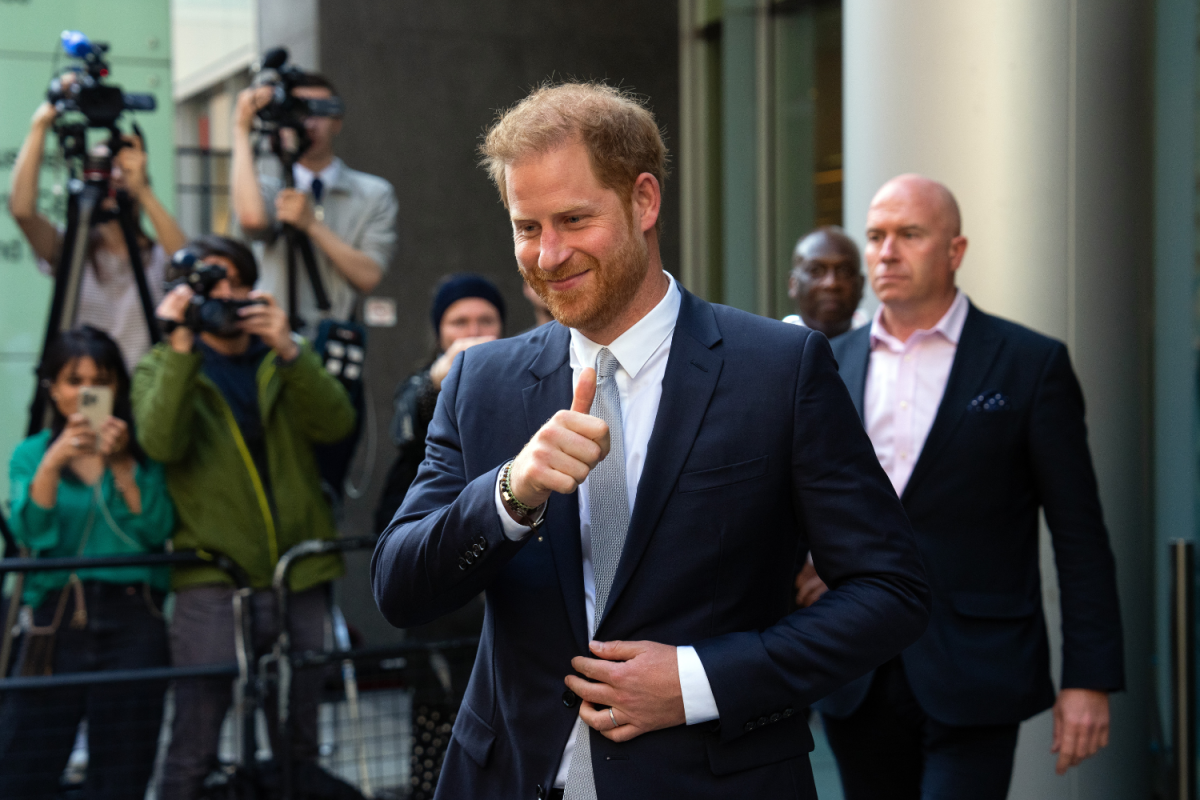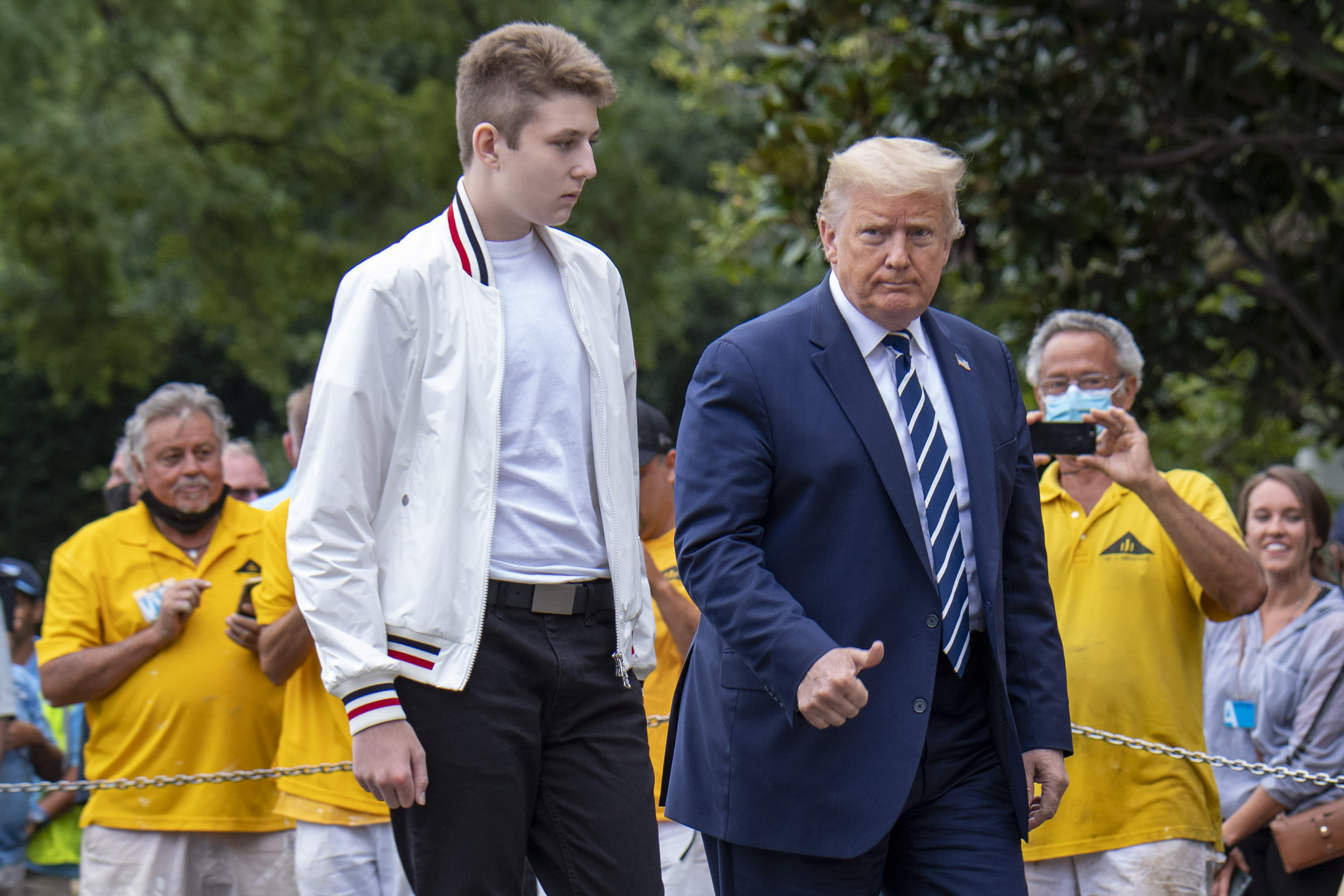Prince Harry's issues with the British tabloid media have extended to the U.S. as photographs of his two-year-old daughter, Princess Lilibet, were published this month without having her face blurred for privacy. This was despite a request for the news organization to do so, a new episode of Newsweek's The Royal Report podcast has learned.
Lilibet, who turned two on June 4, was photographed with her parents, Harry and Meghan Markle, and brother, Prince Archie, while watching a July 4 parade in their hometown of Montecito. The event marked a rare public appearance for Lilibet and the family watched the event in a private capacity from the sidewalk of a public road.
Within hours of the parade, photographs of the princess in Harry's arms were published by the New York Post and Page Six, which are part of the Rupert Murdoch-owned News Corporation.
In the U.K. the photographs were also published by the Mail Online, however a key difference between the transatlantic coverage was that the U.K. stories blurred the young princess' face, whereas the New York Post and Page Six coverage left the royal unedited.

"This speaks to a major and very interesting difference in media culture and media law in Britain and America," Newsweek's chief royal correspondent, Jack Royston, told listeners of The Royal Report. "But also it speaks to a real kind of childhood wound for Harry, which is he hates paparazzi photographs of him, and particularly his children, owing to Princess Diana's experience being hounded by the paparazzi, and his own experiences of being hounded by the paparazzi as a child."
Though it is not clear whether the photographs of the princess and her family were taken by a paparazzi photographer or a member of the public, the images were sold to the tabloids through the paparazzi photo agency Backgrid.
Harry has come into conflict with both Backgrid and Rupert Murdoch's media titles in recent months. In February, the prince and Meghan were pursued by photographers through New York City following an event that was described by their team as a "near catastrophic" car chase. The couple's legal team requested that the resulting images be handed over to them, many of which were taken by a Backgrid photographer.
To this, the U.S.-based photo agency issued a damning public statement, saying that Harry's "English rules of royal prerogative to demand that the citizenry hand over their property to the crown were rejected by this country long ago," and that they "stand by our founding fathers."
In Britain, Harry is suing Murdoch's News Group Newspapers—whose titles include The Sun and now-defunct News of the World—over allegations of historic phone hacking and other forms of illegal information-gathering used to inform stories about his private life dating back to the 1990s. The publisher has denied a number of the royal's claims.
Murdoch's U.S. outlets and Backgrid both being linked to the publication of uncensored photographs of his daughter will prove another irritant in Harry's quest to hold the media to account for invading his, and his family's, privacy.
"My information here is that these photos were taken without Harry and Lilibet's consent," Royston said on The Royal Report, going on to add that steps had been taken to request the news outlets edit their images to protect the princess.
"In fact, as I understand it, they actually asked the Post to blur Lilibet's face," he continued, "and got no response."
Newsweek approached representatives of the New York Post and Page Six via email for comment.
Of the difference between the U.S. and U.K. laws which apply to publishers and the reason that Lilibet's face was blurred in U.K. coverage, Royston noted: "The key distinction here is that in Britain, even if you're in a public place there is still potentially a right to privacy if you are going about your private life."
"That's the kind of a subtle and complicated distinction, because obviously the base position is anything that is in the public domain already is public, not private, and public places are the public domain. But in Britain, under European privacy laws which were introduced into British law in 1998 as the Human Rights Act, if you were going about your private life, even if you were in public, you still have a right to privacy. Now, in America, that law simply doesn't exist."

Since leaving the royal family in 2020 and moving to the U.S., Harry has become a key public figure who has taken on a number of attempts to hold the media to account for what he perceives as invasions of his privacy.
Since 2019, he and Meghan have taken a series of legal actions against British tabloid publishers. Currently, Harry has three ongoing unlawful information gathering lawsuits against News Group Newspapers (publishers of The Sun) Associated Newspapers (publishers of the Daily Mail) and Mirror Group Newspapers (publishers of the Daily Mirror).
The royal is also currently involved in a separate libel lawsuit against Associated Newspapers Limited over a story published in 2022 about his legal battle with the U.K. Home Office and their decision to remove his state-funded bodyguards.
Harry and Meghan have closely controlled the dissemination of photographs of their two children since leaving the monarchy, with only one official solo portrait of Princess Lilibet being in the public domain.
Members of the public got the greatest insight into Harry and Meghan's family life, which included never before seen self-shot footage of their children, in their six-part Netflix docuseries, released in December 2022.
James Crawford-Smith is Newsweek's royal reporter based in London. You can find him on Twitter at @jrcrawfordsmith and read his stories on Newsweek's The Royals Facebook page.
Do you have a question about King Charles III, William and Kate, Meghan and Harry or their family that you would like our experienced royal correspondents to answer? Email royals@newsweek.com. We'd love to hear from you.
Uncommon Knowledge
Newsweek is committed to challenging conventional wisdom and finding connections in the search for common ground.
Newsweek is committed to challenging conventional wisdom and finding connections in the search for common ground.
About the writer
James Crawford-Smith is a Newsweek Royal Reporter, based in London, U.K. His focus is reporting on the British royal family ... Read more
To read how Newsweek uses AI as a newsroom tool, Click here.






